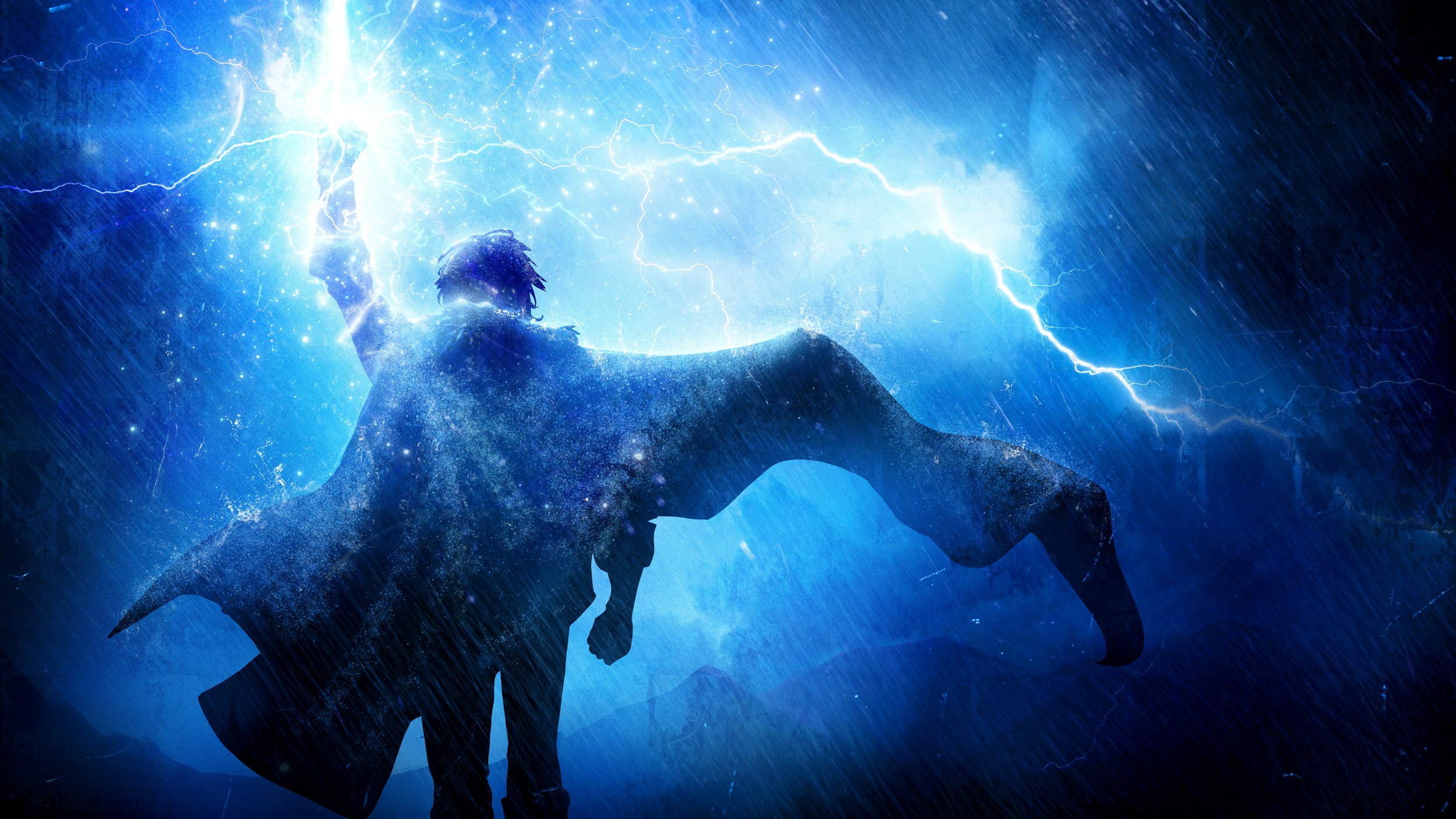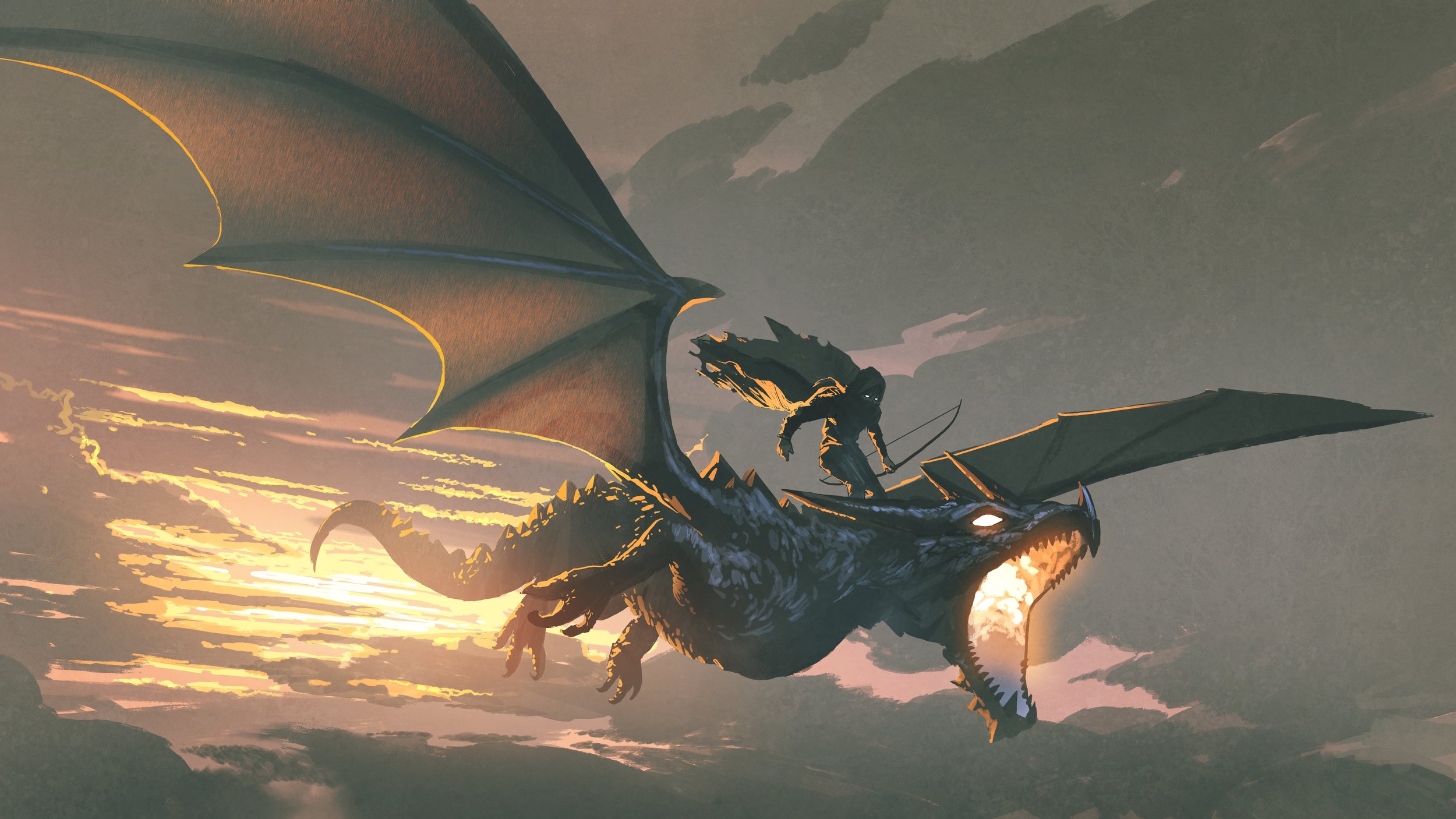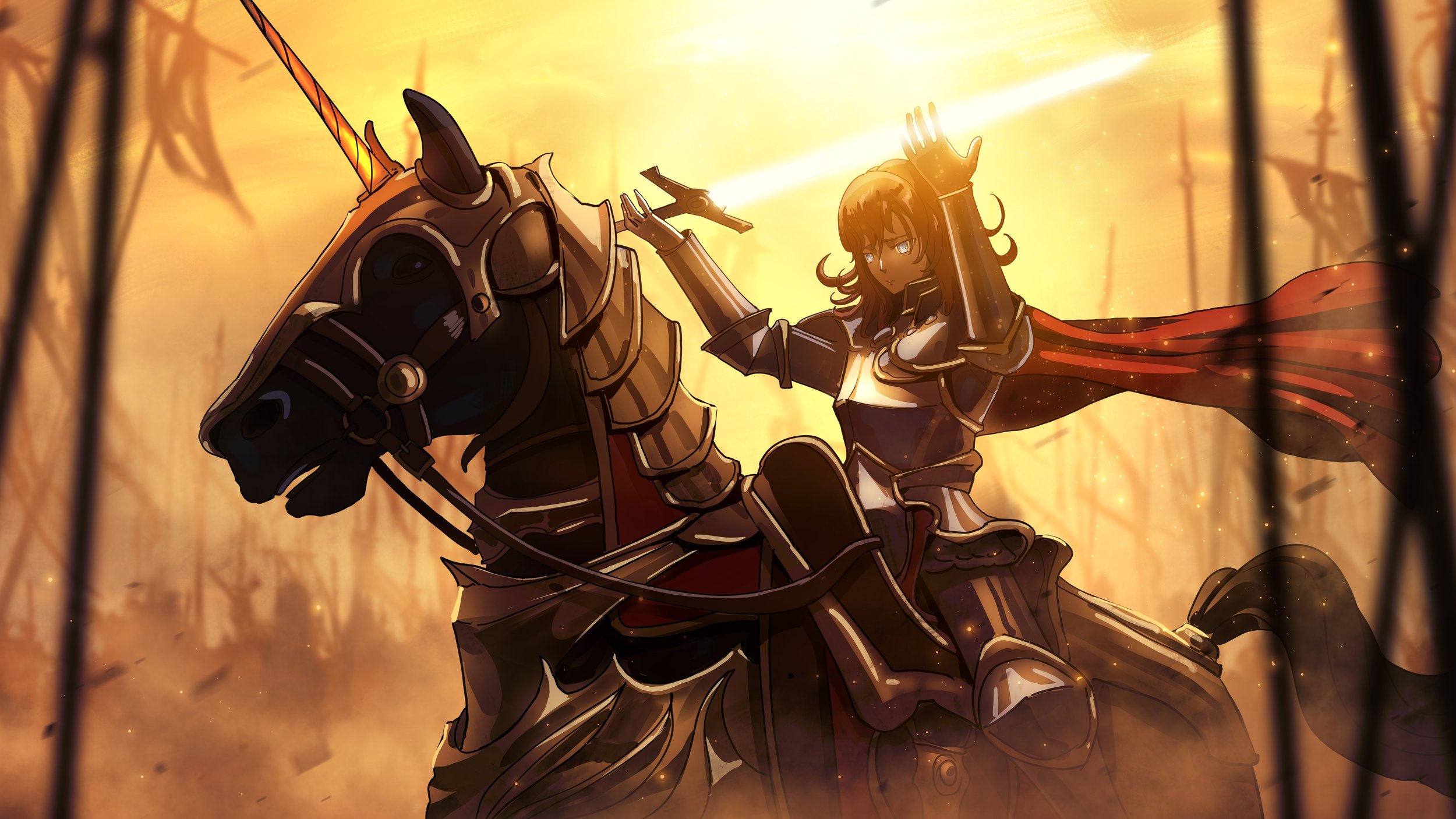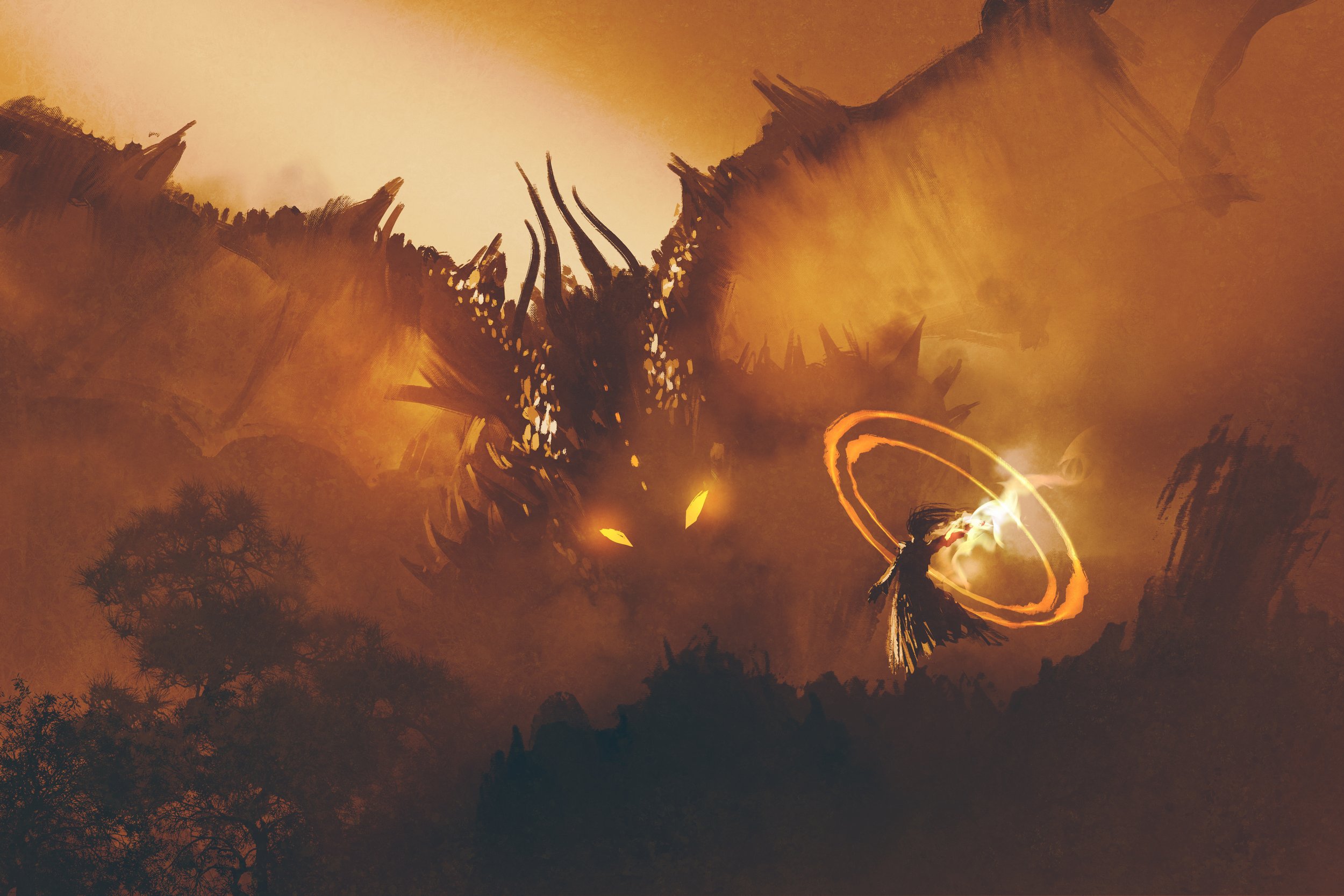How To Be A Hero
Without gaining magical abilities, or finding special superpowers, we all have the ability to become a hero in real life.
Heroes inspire us. Their actions of bravery and courage give us hope. Heroes protect others, help those that cannot help themselves, act when others will not, and save the day again and again. Watching them, we are encouraged to stand up for our values and motivated to do our part to make the world a better place. Heroes improve our lives, whether they are fictional characters in comics and games or real-life figures that make the world a better place. While we don’t have magical abilities or superstrength, we all have the making of a hero within us.
How can we become heroes ourselves? Some of the answers may surprise you because you’re probably already doing some of them.
“Heroes are made by the path they choose, not the powers they are graced with.”
– Iron Man
Who Are Our Heroes
We are naturally drawn to hero figures. Biologically, it makes sense to be with those who protect the weak, especially when we are young and more vulnerable. A Kyoto-based study found that infants can recognize heroic acts in others when they are as young as six months old.
We are introduced to fictional heroes in games, books, and movies as children. And for many of us, these heroes stay with us into adulthood. A 2021 report noted that 68% of US adults consider themselves fans of superheroes.
Our definition of a hero may change as we get older as well, expanding beyond those that offer physical protection. We may also see those who contribute to society, give financially, serve their community, sacrifice their time, or support civil or social movements as heroes as well. An American survey reported what people considered the most heroic careers, and it included several which may not typically involve great physical dangers.
Additionally, our heroes may be closer to home. In research done across 25 countries, 66% of people indicated that there is currently someone in their life that they consider a personal hero.
TOP TEN MOST HEROIC JOBS
1. Soldier
2. Firefighter
3. Police officer
4. Doctor
5. Nurse
6. Teacher
7. Scientist
8. Veterinarian
9. Stay-at-home mom
10. Farmer
"Remember, real heroes are never as polished as the legends that surround them."
- Metal Gear Solid Peace Walker
What Makes Someone a Hero
According to the Oxford Dictionary, a hero is “a person admired or idealized for courage, outstanding achievements, or noble qualities.” But the science of heroes and psychological definition of heroism is still a relatively new area of study.
One proposed distinction is from L.H. Carnell Professor Dr. Frank Farley, who breaks heroism into what he calls the “big H” and the “small h.” The Big H would heroic acts that involve a high risk of danger, injury, or even death. Whereas those that are more everyday heroes that help others, show kindness, practice good deeds, and support their communities would be considered small h heroes.
He further categorizes these as professional, life-long, and situational heroes. Professionals have chosen this path as a career choice, such as firefighters, police officers, or soldiers. Many of our superheroes would be considered professional heroes.
Life-long heroes are often associated with civil or social leaders. Figures such as M.L. King, Mahatma Gandhi, Nelson Mandela, and Malala Yousafzai would be in this category. Their commitment to change and improvements for their communities has created lasting change for the world.
“I think a hero is any person really intent on making this a better place for all people.”
— Maya Angelou
Lastly are situational heroes. These are the everyday heroes that step up in times of need. The person who pulls a stranger from a car wreck rushes into a burning building to save a child or a teacher who protects their students from a shooter. They may never have exhibited heroism in the past and may or may not do so not again in the future, but they step into the role when the circumstances require it. The heroes in movies and literature often are situational heroes, from Frodo to Harry Potter, who did not seem to be a hero but became one.
While we often focus on the Big H heroes in stories and news reports, they share many of the same characteristics and traits with their lesser dramatic kin. Heroes have courage and bravery; they face their fears and take responsibility for their actions. They protect and help others and have the moral integrity to do what is right but not always easy. But heroes are often unknown and unexpected, yet these strangers find the determination to help others. A true hero can make a difference, whether they change the world or just make our day a little brighter. (Read more about the traits of a hero in What Does Your Favorite Hero Say About You?)
HERO TRAITS
Courage and Bravery
Determination
Protecting Others
Moral Integrity
Helpful
Strong Sense of Self
"I think a hero is an ordinary individual who finds strength to persevere and endure in spite of overwhelming obstacles."
-Christopher Reeve
How to Become a Hero
Psychologist Dr. Zimbardo has been studying evil vs. heroism in human behavior for the last 30 years. He estimates that one in five of us would currently qualify as heroes, most of the everyday variety. But based on his research, including nature vs. nurture in human psychology, his conclusion is we all have the capability to become one, and that heroism is a central part of the human experience.
If 80% of us have not yet embraced this part of our human nature, how can we unlock this inner hero? It may be much simpler than trying to gain magical or superpower abilities. (Take the quiz to see What Kind of Adventure Hero Are You?)
Watch Other Heroes
One of the easiest ways to encourage your own heroism is by watching that of others.
A 2018 study found that socialization plays a role in whether people choose to perform heroic actions themselves. One participant in the study noted that he found the strength to act himself because of what he had watched others do in previous years.
But as it turns out that it doesn’t have real-life heroes to inspire us to action. A study in the US looked at the impact of superhero images on behavior. They found that participants exposed to superheroes had greater helping intentions than those who did not. But most surprising was that people didn’t even have to watch the actions of these heroes. Just being exposed to a poster of a superhero was enough to have an impact on whether participants chose to help others.
Heroes inspire us. Whether real or fictional, they can help us to become heroes ourselves.
“There is a superhero in all of us, we just need the courage to put on the cape.”
— Superman
Practice Stress Management
The effects of stress and anxiety on our health are well known. But it also negatively affects our ability to become heroes.
A 2015 study noted that participants experiencing anxiety had greater levels of egocentrism. Essentially, when we’re anxious, there is a higher level of uncertainty, and to protect ourselves, we naturally withdraw into things and perspectives that we are most familiar with. This includes becoming more self-focused. But that means that when we’re dealing with anxiety, we are less aware of the needs of others. This lack of empathy was highest in those with anxiety, more so than in participants dealing with other negative emotions such as anger or disgust. Even angry, we may have a more caring attitude towards others than when we’re stressed out.
A 2022 study in the Journal of Neuroscience looked at the role of stress in people with normally high levels of empathy. It was seen that these individuals were especially impacted by stress. In the study, their levels of charitability dropped sharped when under distress. This change was more dramatic in those who typically have higher empathy than those who had previously reported lower empathy levels. It seems as if the more we can understand and care naturally for others, the more significant the negative impact of stress can be.
But stress and anxiety affect more than just our empathy levels. Due to this natural reaction of pulling back towards the safe and familiar, we are less open-minded, less willing to try new things, and will have a more difficult time facing our fears and summoning our inner courage and bravery.
Heroes are brave. They are helpful. They protect and save others while working towards a better tomorrow. But when we are dealing with stress and anxiety, we have a more difficult time being able to focus on those hero-like goals. To become a hero, we need to manage our stress and anxiety better.
(For tips on dealing with stress and anxiety – check out Stress Management for Geeks and Gamers.)
"True heroism is remarkably sober, very undramatic. It is not the urge to surpass all others at whatever cost, but the urge to serve others at whatever cost."
-Arthur Ashe
Find Your Purpose
Anxiety may cause us to focus on ourselves to the exclusion of others negatively. But when we focus on ourselves more positively and live our purpose, it has the reverse effect. People who have a strong sense of purpose and are actively pursuing their goals have higher self-esteem, self-confidence, and a clear understanding of who they are and their values.
A 2019 study found a significant correlation between self-esteem, a sense of purpose, and empathy levels. Researchers suggested that finding ways to improve self-esteem could effectively boost empathy in future subjects.
However, a study released in 2021 found this may be simple. Researchers found the same connection as where stress and anxiety reduce empathy levels. But they also reviewed self-concept clarity in relation to helping behavior. Those with a strong sense of self had higher empathy scores. But participants with an unclear sense of self had lower empathy overall and were less willing to help others. They also commented that any interventions aimed at boosting empathy without addressing the need for a stable and clear self-concept would be ineffective. We must know ourselves and our purpose to gain the empathy required.
Another benefit of finding your purpose is an increase in self-confidence. When we know what we want and actively work towards it, we believe in ourselves and our decision-making abilities. It is easier to face our fears and have the confidence to take action.
“We do not have to become heroes overnight.
Just a step at a time, meeting each thing that comes up… discovering we have the strength to stare it down.”
– Eleanor Roosevelt
Additionally, having higher self-confidence means that we are less likely to submit to peer pressure. Without being aware of it, we are often pressured into not being heroes by our peers. This is called the bystander effect and has been documented in studies on heroism in psychology.
The theory is that when we are with others and witness someone in distress, we are more likely to remain bystanders instead of providing assistance. And the greater number of people present, the less likely someone will be to help, even if watching a person in significant danger.
But it’s not that we are careless individuals. In fact, most people will report that they want to help. But instinctively, we don’t want to be the first ones to do so. If someone else jumps in first, others, possibly many, will likely follow. But without that initial volunteer, most people will remain bystanders without helping.
While having a stronger sense of empathy may encourage us to want to help others, we may still lack the willingness to be the first. But having a stronger sense of self and self-confidence helps us break that peer pressure.
A report in Forbes noted that those with higher self-confidence are more likely to speak up at work and call out issues in the environment. And a 2016 report noted that the heroes that take physical risks to protect or save others might be less concerned with the social implications of their actions than their non-heroic peers.
Heroes have a strong sense of self and moral integrity. Having a strong sense of purpose encourages us to stand up for what we believe. It builds empathy, self-esteem, and self-confidence, which gives heroes the courage to take risks and the confidence to take action. To become heroes, we need to understand ourselves and live our purpose.
(For more on finding your purpose – check out The Importance of Why in Gaming and Life.)
"I think that we all do heroic things, but hero is not a noun, it's a verb."
- Robert Downey Jr.
Be a Hero to Yourself to Become a Hero for Others
Sometimes the person that needs to be saved the most is ourselves. In a physical disaster, we have to ensure our safety before being able to protect others. Hence, the flight attendants speak that in an emergency, everyone must put on their own oxygen masks before helping others.
But this is not just in physical danger and can also relate to personal trauma. We can protect and save ourselves, whether the threat is physical or emotional. Working through a difficult situation, bad relationship, or toxic work environment, we can become the hero and protect and care for ourselves. And while we may not see the importance of our heroic actions at the time, they can have a profound impact. A 2016 report noted that taking heroic efforts can produce long-term character change.
This long-term change can make us more likely to protect ourselves and others in the future. In his research, Dr. Zimbardo noted that having survived a disaster or personal trauma makes us three more likely to act as a hero in the future.
Sometimes to be a hero to others, we first need to save ourselves. And when our minds embrace this example, it transforms us. Being a hero once makes it easier to become a greater hero in the future.
(For more on unlocking your inner hero, check out Hero Coaching.)
Heroes inspire us. They motivate, guide us, and give us hope for a better future. But we can become the hero by living our values, embracing our purpose, and caring for ourselves and others. It is up to us to become the heroes the world needs, and together, we can be the ones that save the day. What kind of hero do you want to become?
Author:
Laurie Trueblood is a writer and life coach that enjoys fantasy, science, psychology, and everything nerdy. As the founder of Adventures to Authenticity, her mission is to help others level up and become the best versions of themselves.
Find more on becoming a hero: Check out What Your Favorite Hero Says About You and Real Life RPG – 25 Real Life Quests for Nerds, Geeks, Gamers, and Would-Be Adventurers and our Unlock Your Inner Hero Coaching Program











